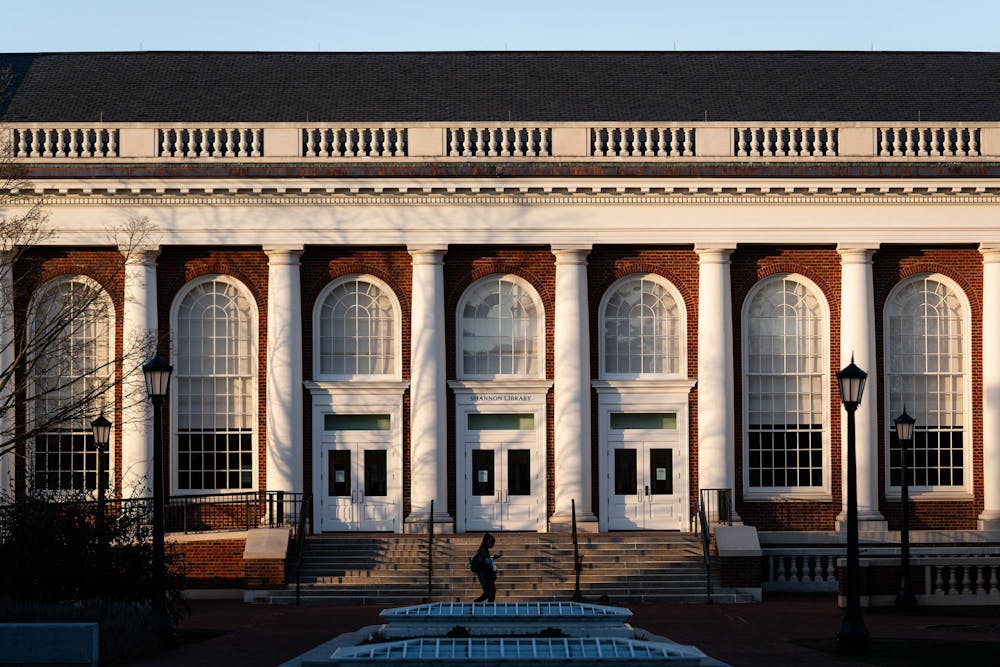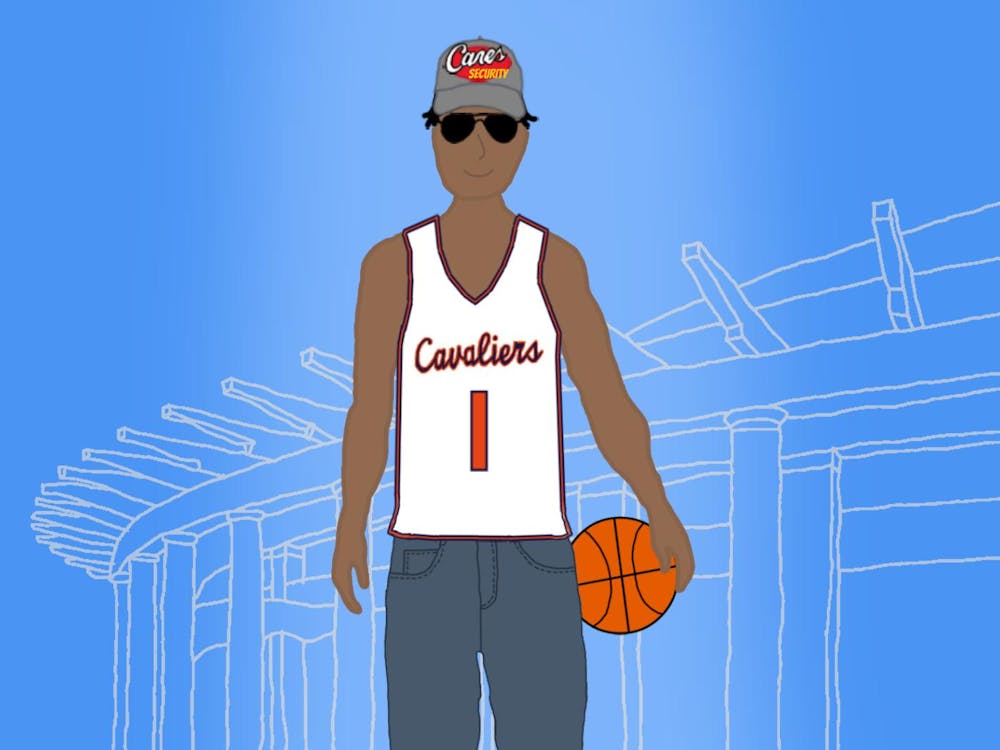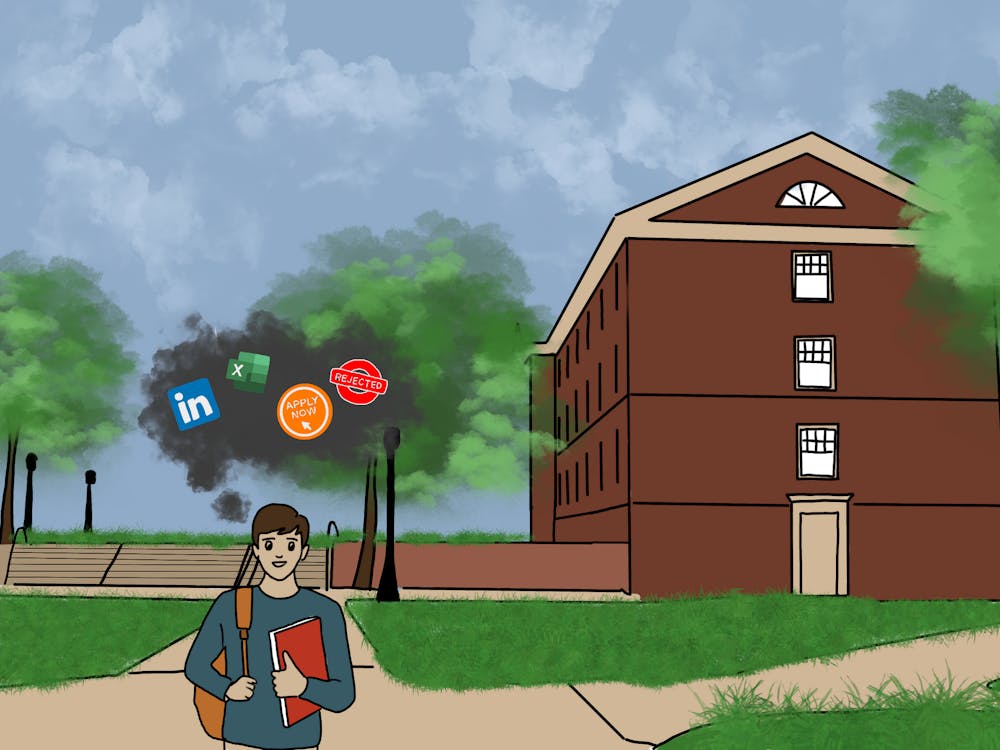Editor's note: This article is a humor column.
Dodging balls in the middle of a game of catch. Groups of students practicing their singing. Couples exhibiting public displays of affection. You might be thinking I’m trying to remind you of the horrors of your middle school recess experience, but in fact what I am describing are University libraries.
As I reflect on these experiences, plus other barbaric behaviors that were flagrantly displayed during the crazed fall semester finals season, I can’t help but consider how we could take our competitive nature and put it towards good use. It seems that each Sunday evening, the holy trinity of Clem, Shannon and Clark become battlegrounds — not just for students fighting to get through their homework, but full-blown psychological warfare over spaces. From newcomers not understanding the auditory volume differences between Clem 1 and Clem 2, to other students taking phone calls in the otherwise dead silent Clark stacks, there are severe violations of the de facto rules.
When I thought things couldn't get much more unruly, I witnessed students studying in one of the newly installed Clem 2 booths one night and still there, asleep face down with their backpacks serving as a pillow, when I returned at 8 a.m.
What is worse are the couples who feel particularly at home — let’s step up to the plate and take our significant others to some better date spots than the Clem 4 booths. I can attest first hand that it is off-putting to witness canoodling at the libraries, even if you are in the semi-enclosed confines of the three and three-quarter walls of a cubicle, or the newly installed Clem 2 couch areas. Suffice to say, save these habits for your home — and not for the nonconsenting viewers in Clem and Shannon.
To top all of this off, even the reopening of Shannon in spring 2024 could not meet the demand for the need for study spaces. At the end of each week and especially during midterms and finals seasons, libraries become as overpopulated and ruled by outlandish behaviors as a town mall on Black Friday. It’s an accepted fact that if you leave for the library at any time after 9 a.m. on a Sunday, you may as well just turn back around. That is, unless you are willing to make a two person booth fit four, share a chair with a study buddy or sit on top of the Rotunda praying you don’t slide down the dome.
Considering this, I have a proposition to make — Library Sabre Points.
For men’s basketball games, University students gain attendance on a lottery basis through the amount of Sabre Points they have accumulated by attending other athletic events in the semester. Under my proposed system, they will also be able to access library spaces in the same way. The more you are physically at the libraries throughout the semester, the more points you accumulate and can redeem during finals season in the spring. Student attendance will be tracked via student ID scan. It is a perfectly fair approach for a University that prides itself on merit, and of course, constant and merciless competition.
In the current Sabre Points system, students lose points for no-showing basketball games they had reserved tickets for. This principle can also be directly transferred into a library setting. With every no-show for reserved spaces or deemed “recess-like” activity displayed in a University library space, students will lose points towards their total. This will finally help restore order, with library student wage workers responsible for identifying any behavior that falls under the deemed “recess-like” activity, including but not limited to PDA, high-pitched noises and airborne objects.
Students will also be able to report said activity and are encouraged to turn themselves in— point deductions will be lessened— in the spirit of the Honor code’s multi-sanction system.
This system will incentivize students to actually take advantage of the resources available to them without taking them for granted. There is no frustration quite like seeing a red “occupied” symbol and a name like “Kyle and the Boys” on the study room sign with no sign of life. Beyond behaviors, the system would include point deductions for the number of non-academic objects brought into the libraries, conducted via metal detectors much like the John Paul Jones security system.
Although some may object that library access creates community, after witnessing someone wheel an entire pressure cooker into Clem 4 for a potluck last fall, I believe a line needs to be drawn. While I support fueling your body in such a grueling academic environment, the University itself is enough of a pressure cooker on its own.
It’s commendable that students intend to bring their entire life to their academic pursuits, but it has simply gotten out of hand. For a University so committed to regulating its behaviors on Grounds and promoting a competitive environment, I challenge a step up in preserving the order of the libraries for the next finals season.







